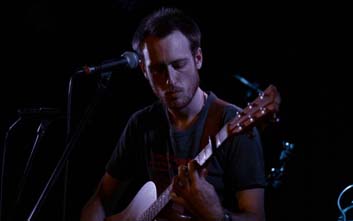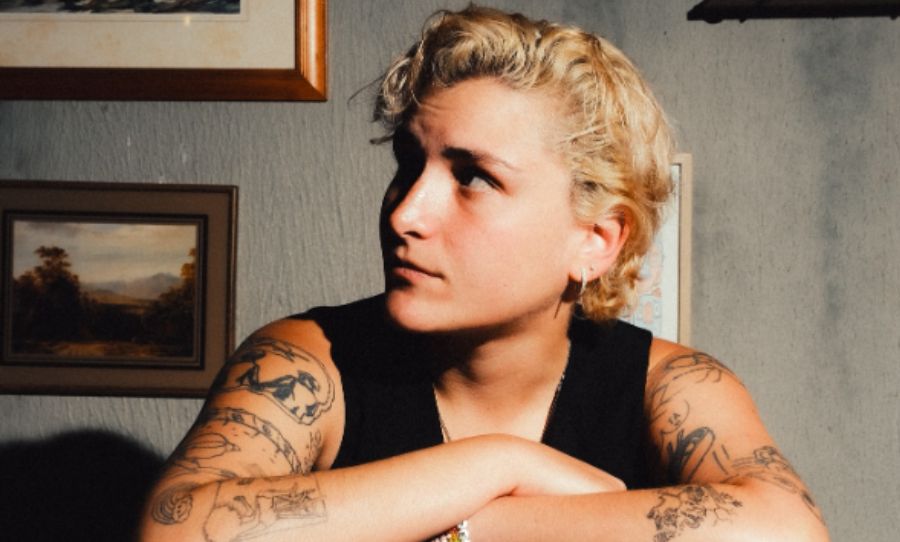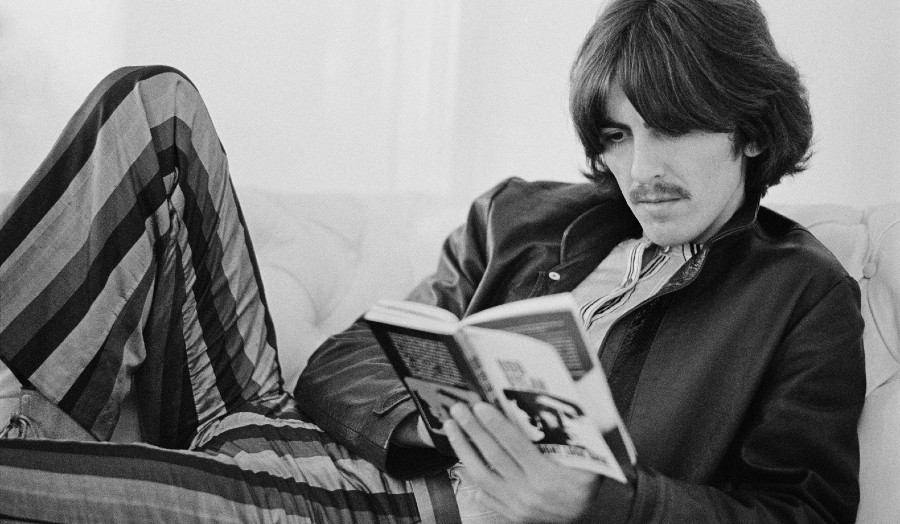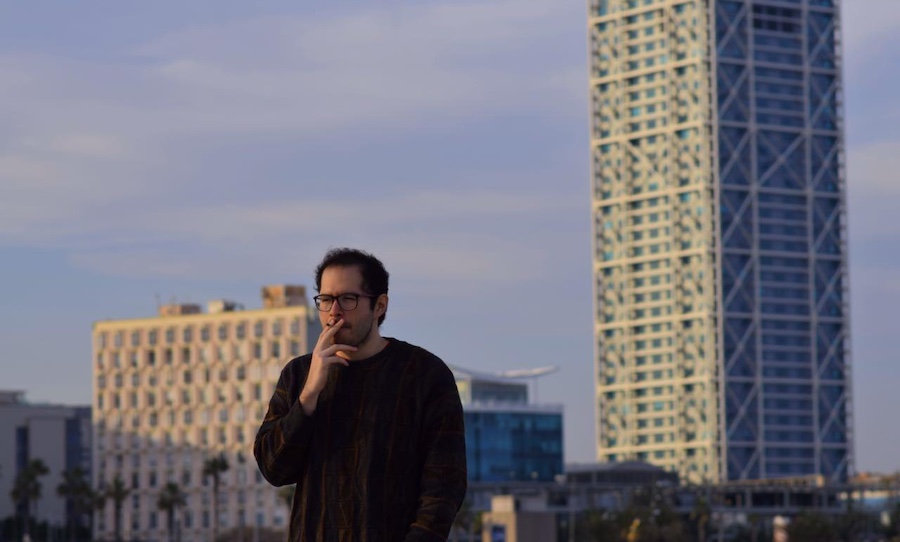Two up-and-coming projects based out of Brisbane, Aiden Bradley and Would Be Cool are finding their feet in one of Australia’s most thriving music markets. The former crafts a stirring, lyric-driven pop rock and the latter belts out brash underground punk.
As Aiden Bradley promotes his debut EP and Would Be Cool gears up to release theirs, we linked the two of them up for a chat. Drummer Lyndon Caswell stood in for Would Be Cool.
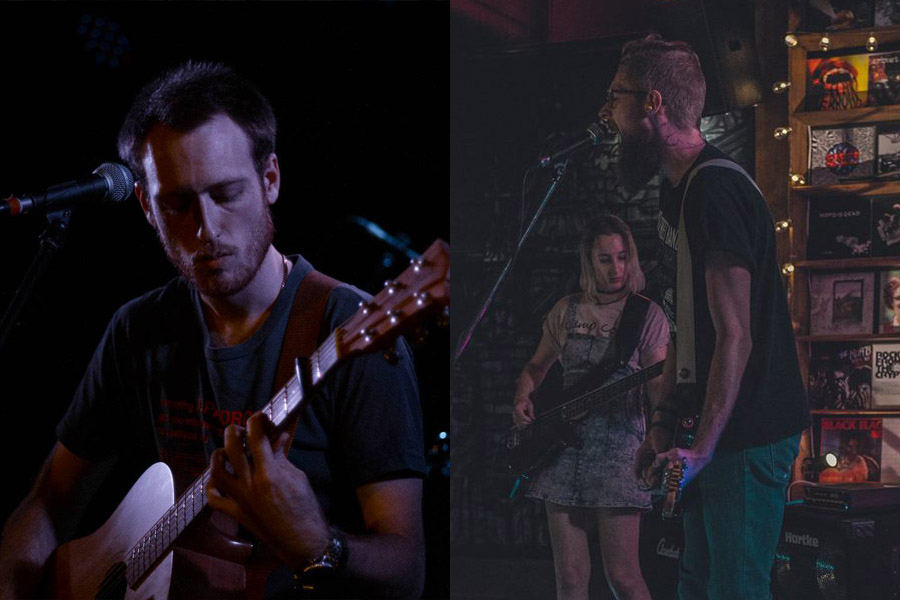
Political anthems, personal songwriting, and the value of trying something new: Aiden Bradley and Would Be Cool’s Lyndon Caswell interview one another.
Lyndon Caswell interviews Aiden Bradley
LYNDON: You’ve been working on your EP for quite some time, what’s the process been like and if you had your time again, would you do anything different?
AIDEN: The process was pretty painstakingly long. I recorded and produced everything myself and I really hated how much time wasn’t dedicated to actually just making music. There’s a certain benefit to how long it took, and that’s that I spent a lot of time learning what techniques are needed to make things sound the way that I wanted them to. It was a really educational process and I think that after going through months of working on it, it definitely won’t take me as long next time.
If I had my time again I’d absolutely bring on more personnel. I think having more pairs of ears on a project really can bring out the best in something, even if it’s minute details that could be easy to miss, especially if you’ve been sitting on something for ages.
LYNDON: One of your songs, Siege, you have mentioned is a very old song that you re-imagined – how has the response to the new version been and are you happy with where the song ended up?
AIDEN: The response to the new one has been really wonderful. It was really nice seeing what I could do with the track after progressing as a musician and seeing what new sounds I could open the track up to. The track was a lot slower and the riff that it starts out on was very thick and held the whole thing together, but production wise, the old one was a mess and the performances weren’t all that great.
I put it up with a music video and the response to that was pretty insane. Seeing something that I’ve done get a few thousand views a couple of weeks after putting it up was really surreal to me. I’ve never had anything do as well as that.
LYNDON: Your live show consists of a lot of looping and effects with just one guitar and no drums, whereas your recordings are heavily layered with a lot of instruments. How do you find your songs translate from live to recording, and what is that process like?
AIDEN: I always wanted my live show to be different to the studio recordings of the tracks. The recordings are normally full band compliments with loads of vocal harmonies and stuff like that. When I’m playing the songs live, they’re a lot more stripped back and I use the looper to create something a bit bigger than just a regular singer/songwriter show. I use loads of reverbs and delays and stuff like that to add a bit of an atmospheric sort of sound. I feel that a load of people who do the looping thing really embrace the minimalism of it, I kind of work the opposite way. I try to make it sound as huge and as wide as I can on the fly.
LYNDON: Which song of yours is most emotionally intense for you and why?
AIDEN: Boat Ramps as a single has a lot of meaning to me. I write very literally and more often than not, I write about stuff that happens directly to me. I try to write about my relationships with people and how they change me as a person. I feel that Boat Ramps summarises the place I was in when I was writing the EP and that’s why I made it the title track.
LYNDON: You seem to have your musical fingers in a lot of different baskets (2 hour study mixes, YouTube gear reviews, etc). What is your approach to running yourself as a business and has it affected the way you feel about the industry?
AIDEN: It’s funny that you mention the gear reviews, that’s going pretty far back. I started a YouTube channel as a cathartic thing when I was 16 in high school. I found something really satisfying about setting up a camera and playing around with effect pedals for ages. After a while, when I started writing and playing out more, the channel started shifting more towards original music and stuff like that.
I like changing things up because I think it’s important for artists to never stop trying new things. I got the idea to make a really long ambient performance for people to study to and I liked setting the challenge of playing for as long as I could without making any mistakes and everything flowing from track to track.
The music industry is tough at the best of times and downright dream-shattering at the worst. Part of what I’d love to get into is writing songs for other people. I’m working on a collaborative EP right now with a bunch of other Brisbane artists and it’s put me in an interesting spot of writing songs that I know I’m not going to be the main vocalist on.
I think it’s always important to be trying new things and to get experience in just about every field that you can.
Aiden Bradley interviews Lyndon Caswell
AIDEN: Your sound is really clearly inspired by a few really popular Melbourne bands like Camp Cope and The Smith Street Band. Was that the idea you had clearly in your head when you started the band or was it more something that occurred as you began to write songs and rehearse?
LYNDON: Well when we started working together it kind of just worked out that way. We were converting of a few of James’ solo songs into full band and his style kind of just led us in that direction. Funnily enough though I’d say (without consulting him) James would consider the likes of Billy Bragg and Paul Kelly bigger influences on his initial writings.
AIDEN: You were a guitarist for Lifeboat for a long time. Now that you’re drumming in this band, I was wondering what the transition from playing guitar to drums on stage was like for you?
LYNDON: In a word, difficult. It’s been a fairly intense few months really focusing on improving and getting ready for performance on a new instrument, it has taken me way out of my comfort zone to be honest, but I really think that is a good thing. I haven’t worked this hard on learning music in a long time, but I’ve really enjoyed it. A whole new world of gear has also opened up to me, and I’m loving that – but my wallet isn’t.
AIDEN: There’s a lot of political messages in the songs that you write and perform, was that an idea that you wanted to go with from day one or was it something that you felt you had to express?
LYNDON: I think with the three of us working together it was really inevitable. We all have very similar and very strong opinions politically, so it seems only natural that that comes out in the stuff we create together. But in saying that, I wouldn’t call us a ‘political’ band, nor would I say it’s the only thing we would want to express creatively, we’re kind of just taking a ‘whatever comes out is cool’ approach.
AIDEN: What’s one song that all three of you really love rocking out to at rehearsal?
LYNDON: Funnily enough, our favorite song is definitely our most political. It doesn’t have a name but the working title at this stage is just Queensland. Not going to say anymore than that, I’ll leave the rest for the release, haha.
AIDEN: You’re a three piece and you’re all close friends. Was there ever a time where you wanted to maybe audition other people to join the band?
LYNDON: Not really. It has been something we have glazed over but never really taken seriously. We are a really tight-knit group and I think that intimacy works in favour. It’s really easy to work together and make decisions and we’re all almost always on the same page. I think the other thing for me personally is that I have always found the people I work with and my relationship with them to be almost more important than anything else.
